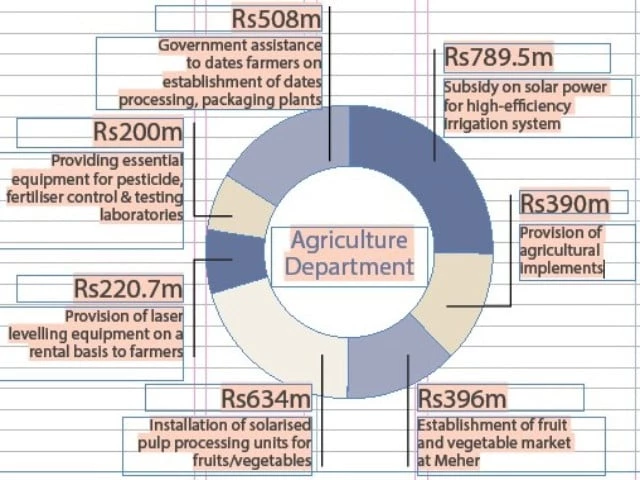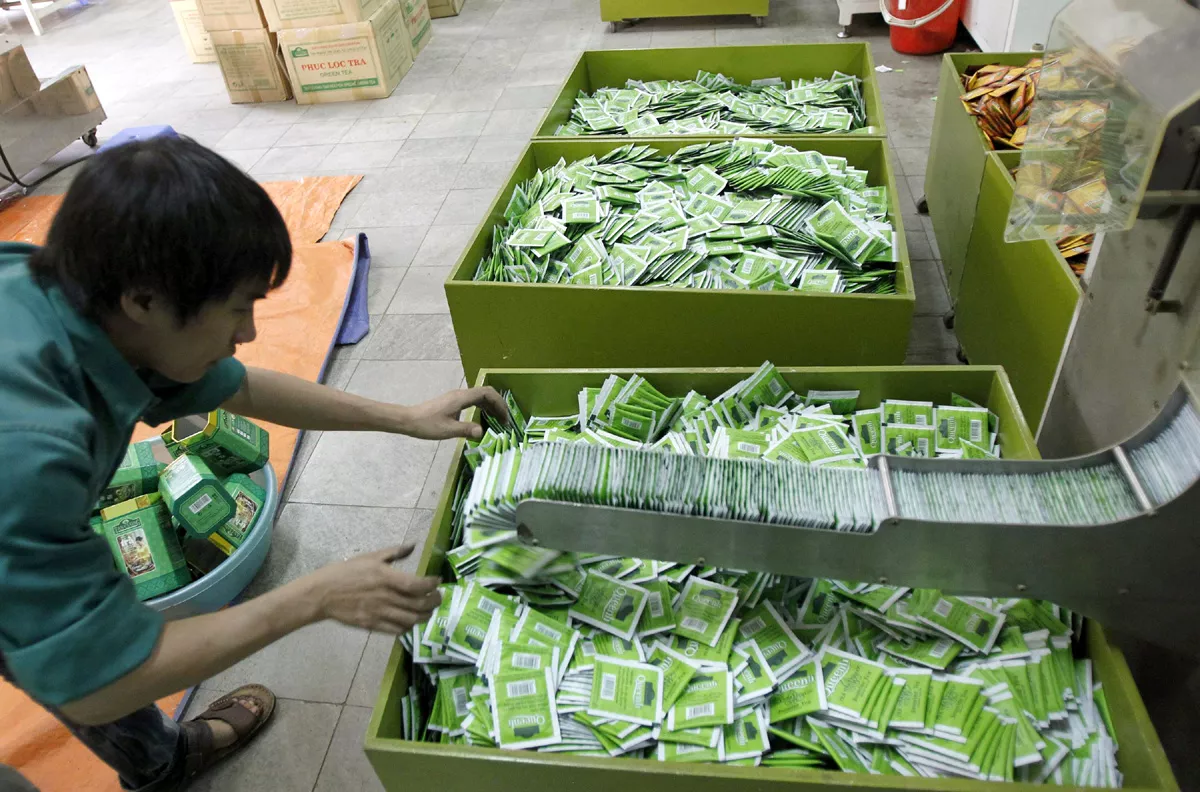Sindh agriculture gets Rs133b
Province bets on modern farming, irrigation, horticulture clusters

The Sindh government has allocated a total of Rs132.79 billion for the agriculture sector in its 2025-26 budget. This includes Rs46.29 billion for the Agriculture Department, with Rs35.26 billion for service delivery and Rs11.03 billion for development projects. A key focus is the promotion of modern and sustainable farming practices across the province.
The government has earmarked Rs789.5 million to subsidise solar-powered, high-efficiency irrigation systems aimed at improving water use in farming. To support the date farming industry, Rs508 million will go toward setting up processing, packaging, and new plant facilities. An additional Rs634 million will be spent on solarised pulp processing units for fruits and vegetables, while Rs396 million has been allocated to build a new fruit and vegetable market in Meher.
For farm mechanisation, Rs390 million is set aside for modern agricultural implements. Another Rs220.7 million will be used to provide laser levelling equipment to farmers on a rental basis. Rs200 million has been allocated for upgrading laboratory equipment used in pesticide and fertiliser testing.
"These initiatives are designed to revolutionise Sindh's agriculture, foster green transport solutions, and attract private investment in critical sectors," said Sindh Chief Minister Syed Murad Ali Shah while presenting the Rs3.5 trillion budget for FY2025-26, with a deficit of Rs38.5 billion. This represents a 12.9% increase from the FY2024-25 budget of Rs3.1 trillion.
"Through technology, partnership, and a pro-poor strategy, we are creating an inclusive, productive, and resilient rural economy," he added. A significant portion of the Rs132.79 billion allocation will be directed towards Public-Private Partnership (PPP) projects to modernise the province's agricultural sector and improve productivity.
One major PPP initiative is the Rice and Wheat Mechanisation Project, focusing on full-cycle mechanisation of rice and wheat farming. This includes techniques like laser levelling and drone spraying. The government launched the Request for Proposal (RFP) for transaction advisors in May 2025, with investor solicitation expected in September 2025. Another PPP project, the Cluster Farming Development Project, aims to map region-wise horticulture clusters in Sindh. It will support modern storage, processing units, and efficient transportation systems to reduce post-harvest losses and increase value addition.
The government also announced tax and non-tax reliefs to simplify the tax system and reduce the financial burden on citizens and businesses. Five levies are proposed for removal: the cotton fee, professional tax on salaried individuals and small businesses, entertainment duty to promote cultural activities, and the local and drainage cesses.
These reforms aim to create a business-friendly environment that supports agricultural and industrial growth.
Agriculture expert Mahmood Nawaz Shah welcomed the increased agriculture budget but raised concerns over key gaps.
He praised the Rs500 million allocation for date processing, calling it a positive step, but stressed such initiatives would be more effective if done through PPPs with a debt-equity model. "When the government alone funds such projects, they often face governance challenges, making it difficult to operate them on a commercial basis. Various interest groups interfere, risking the viability of the project," he warned.
Shah also noted the absence of clear investments in agricultural research and seed development. "Nothing was mentioned about the Seed Corporation, which owns 6,000 acres. This is a missed opportunity to improve seed quality and innovation," he said.
On water scarcity, Shah emphasised the need to increase water productivity through drip and sprinkler irrigation systems. "Water productivity remains low, and past successful initiatives like watercourse lining have been discontinued. The World Bank-supported drip irrigation programme was shelved, and no alternative strategy has been outlined in the new budget," he noted.
In horticulture, Shah said apart from dates, no budgetary focus was given to value addition or processing of crops like mangoes, bananas, green chilies, and onions. "There should have been a focus on developing processing facilities, improving value chains, and boosting exports of these products. Sadly, the budget remains silent on these fronts," he added. Shah concluded that while the funding increase is welcome, the lack of planning in research, water efficiency, and value addition could limit long-term agricultural growth.
For energy
The Sindh government has allocated Rs67 billion for the energy sector in FY2025-26, focusing on renewable energy, rural electrification, and power infrastructure.
A major portion, Rs13 billion, has been set aside for special projects aimed at expanding renewable energy sources in the province. Another Rs11.9 billion will provide Solar Home Systems (SHS) to low-income households in remote areas, improving access and reducing reliance on the national grid.
The Village Electrification Programme in Sindh will receive Rs834 million, intended to enhance rural power connectivity.
To promote localised power generation, the government has allocated Rs4 billion as subsidies for the establishment of new Captive Power Plants.






















COMMENTS
Comments are moderated and generally will be posted if they are on-topic and not abusive.
For more information, please see our Comments FAQ